Displaced & Neglected: The Struggles Of Sokoto IDPs Who Survived Terror Invasions
Residents displaced by bandits in various communities in Northwest Nigeria are facing hardship as they have limited access to livelihood support at IDP camps.
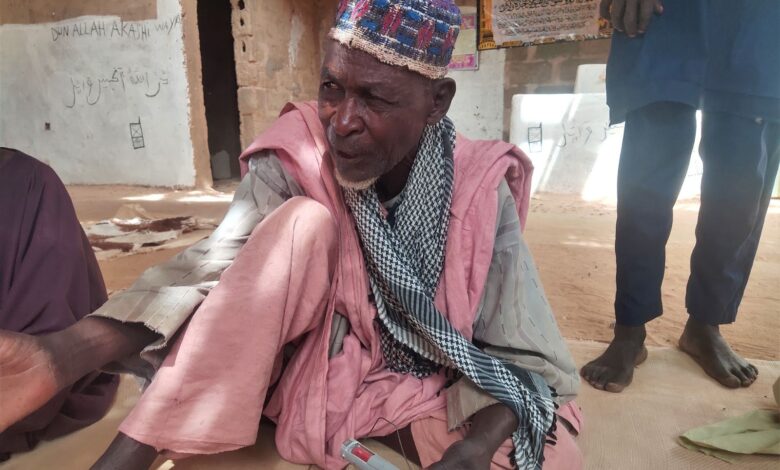
Isa Adamu, 60, would have loved to spend the rest of his life in his hometown in Sabon Birni Local Government Area (LGA) of Sokoto in Northwest Nigeria, but he had no choice other than to leave following repeated terror attacks.
Sabon Birni is one of at least seven areas in Sokoto under frequent attacks by terror groups, known locally as bandits, with the crisis leading to huge losses of lives and property. Many of the over 42,000 displaced residents have resorted to begging for food and shelter. Those who could not flee have joined vigilante groups to protect their villages.
As the situation worsens, vigilante heads and community leaders are not spared. The terrorists now impose multi-million naira protection levies on residents in some of the communities.
“I have spent my entire life working as a farmer with my wife and seven children in Sabon Birni until the evil bandits started killing our people. Over 200 close friends and associates have been victims of their raids,” Adamu said tearfully. “I left my cows and other belongings because my life matters most. Though we live here [at the displacement camp], we struggle to eat once daily.”
He told HumAngle access to food is the biggest challenge for the displaced people living in the camp as they lack humanitarian support and battle with official neglect.
“Since we exhausted the little money that I came here with, my family members have gotten used to not having enough to eat. We now fell trees in the bush and sell them to those using them for firewood.”
Adamu thought his wife and children would join relatives in Goronyo to farm for better living conditions but that appears impossible because many residents of the area have also been displaced by bandits and the farmlands are unsafe.
“Every sound I hear makes me scared because this place is also not safe. They can enter anytime and unleash attacks on us. There is no food, water, electricity, or medical care. People are just suffering. The government should help us.”
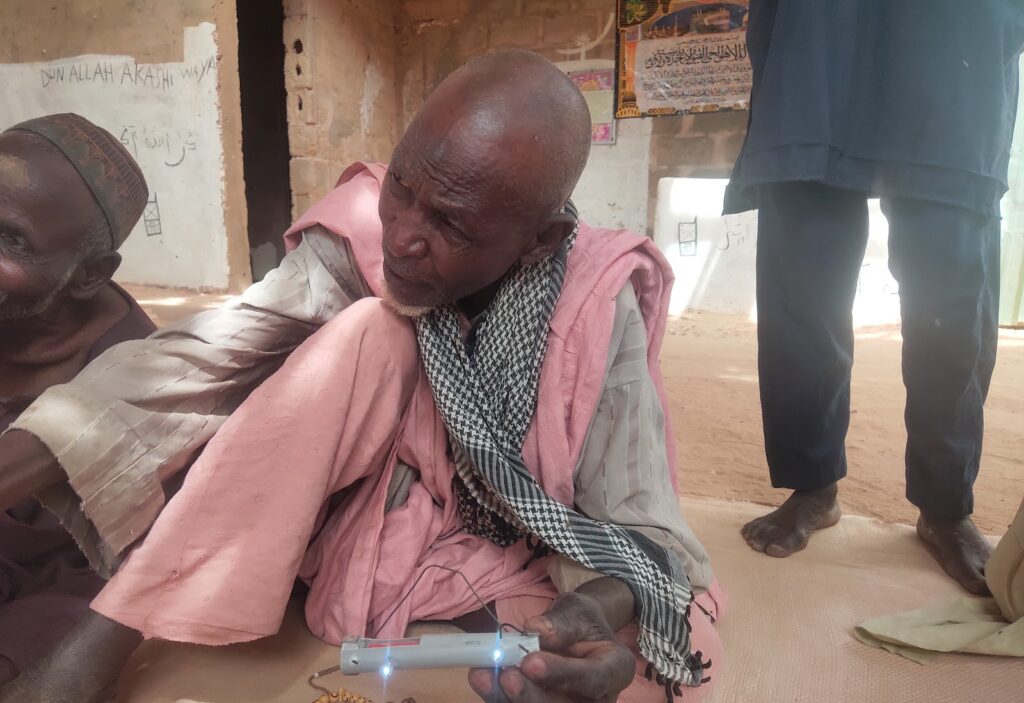
Adamu concluded plans to leave Sabon Birni in Dec. 2021 after bandits invaded Gatawa village, burning over 20 people alive. He spent days on the streets, trying to figure out his next destination. Then he met other displaced people and, together, they found refuge at an abandoned ‘400 Housing Unit Camp’ at the Goronyo local government metropolis.
Abandoned housing units
The 400 Housing Unit Camp was built through donations from the Federal Government and civil societies for residents displaced by floods in the state in 2010. In the end, only 170 units were said to be completed by the Aliyu Magatakarda Wamakko led administration. The project was inaugurated on May 28, 2015, with over 200 others uncompleted.
The camp is expected to have schools, a playground, clinics, police outposts, mosques, primary schools and Islamiyya, along with other necessary facilities. This was, however, not the case as the project was marred with allegations of corruption.
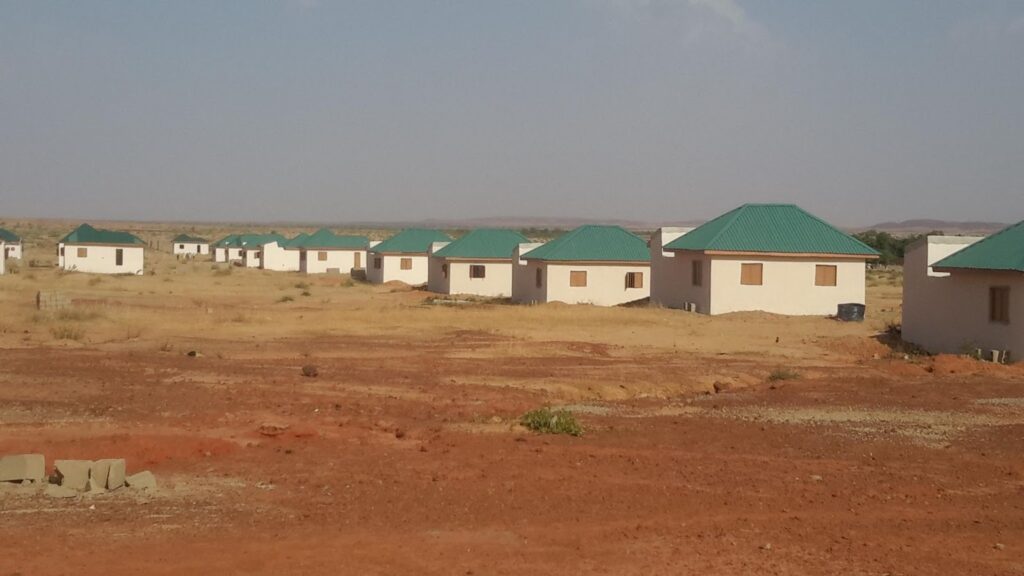
Victims of the flood disaster had on several occasions protested, alleging the diversion of government assistance and packages intended for them. Since the project was inaugurated, the authorities have neither completed the buildings nor allocated them to the affected people.
Speaking with HumAngle, Suleman Zeyanu, secretary of the security committee in Goronyo, said, “As our people continue to face banditry attacks, many have lost their livelihood. So we decided to allow those displaced to stay at the 400 housing units, hoping that the government would help them as they struggle for survival.”
Struggle to stay alive
Putting food on the table for his family and accessing other basic life needs is increasingly difficult for Musa Abdullahi. They only survive on gifts from non-governmental organisations that sometimes visit the camp. The 40-year-old farmer displaced from Tangaza village in January said he had a near-death experience when he came down with malaria in February because IDPs in Goronyo do not have access to medical care.
Abdullahi’s illness was a result of mosquito bites. He showed HumAngle the dingy and dampened room his family occupies at the camp. The room has neither door nor window and the roofs have fallen apart, exposing them to harsh conditions.
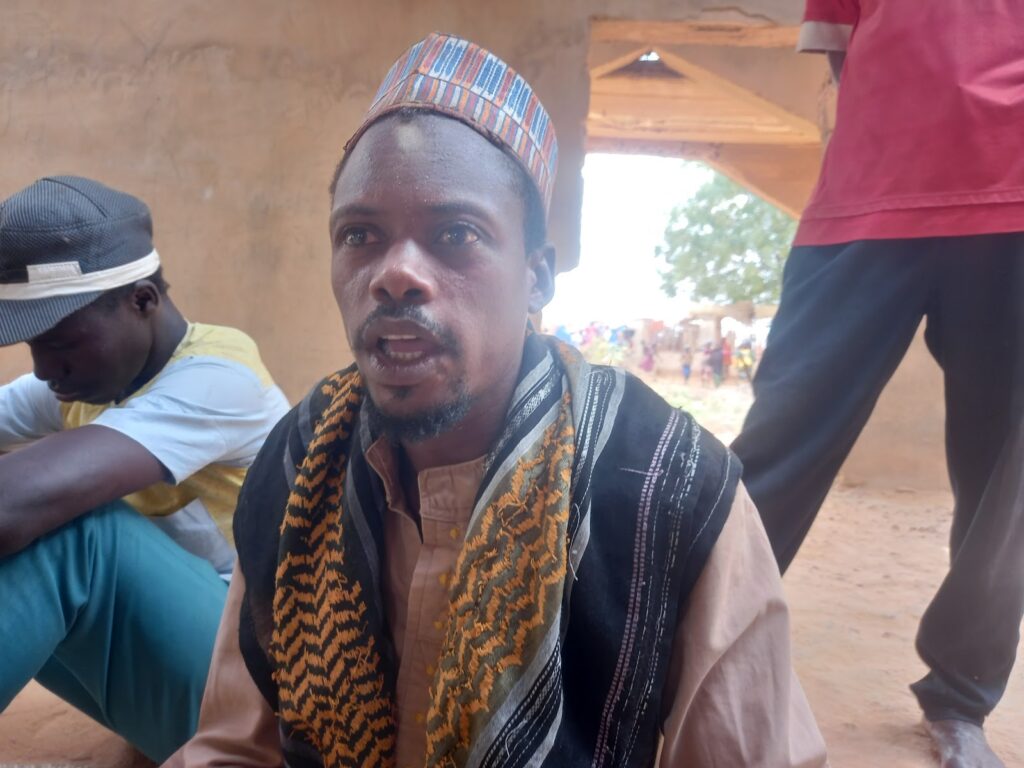
“We don’t have food and money. Our houses have open roofs. You saw the condition here with your eyes. Help us with anything you have. We may not have anywhere to stay as the rainy season draws nearer.”
He told HumAngle that his wife suffered daily to get water as they faced drought. “We have a water problem and we don’t have anywhere to farm or even anything to make us happy. We are not the cause of the situation we find ourselves in but here we are suffering for the harm done on our community by bandits.”
“We want better conditions. I almost died of sickness last month following mosquito bites. We don’t have nets and there is no health facility. I really do not think that those in government cherish us. Our women are starving and trekking long distances to get water for use,” he lamented.
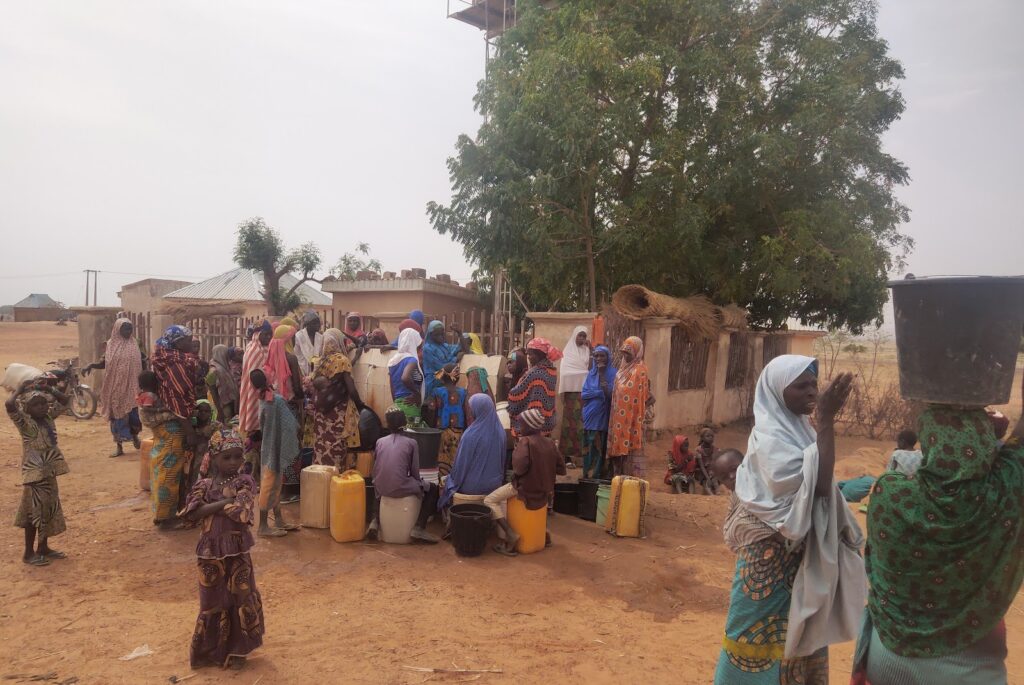
The pains of women
Aisha Adamu, 50, who also lives at the site, was displaced from Sabon Birni alongside her husband and six children. She had just returned from where she had gone to fetch water when HumAngle got to the camp. It’s a daily struggle, she told us.
“This is the poor situation we find ourselves in. Trekking distances to get water is telling on our health. We are only hoping that those in government will read what you are writing about us and help us.”
Though she had only spent a month and a half at the IDP camp, Aisha has had a rough time. She travels far distances like the others to fetch firewood in the bush and returns with profits ranging from ₦300 to ₦500. This is only enough for her to prepare a meal daily. A large portion of this goes to feeding her children who “need it more”.
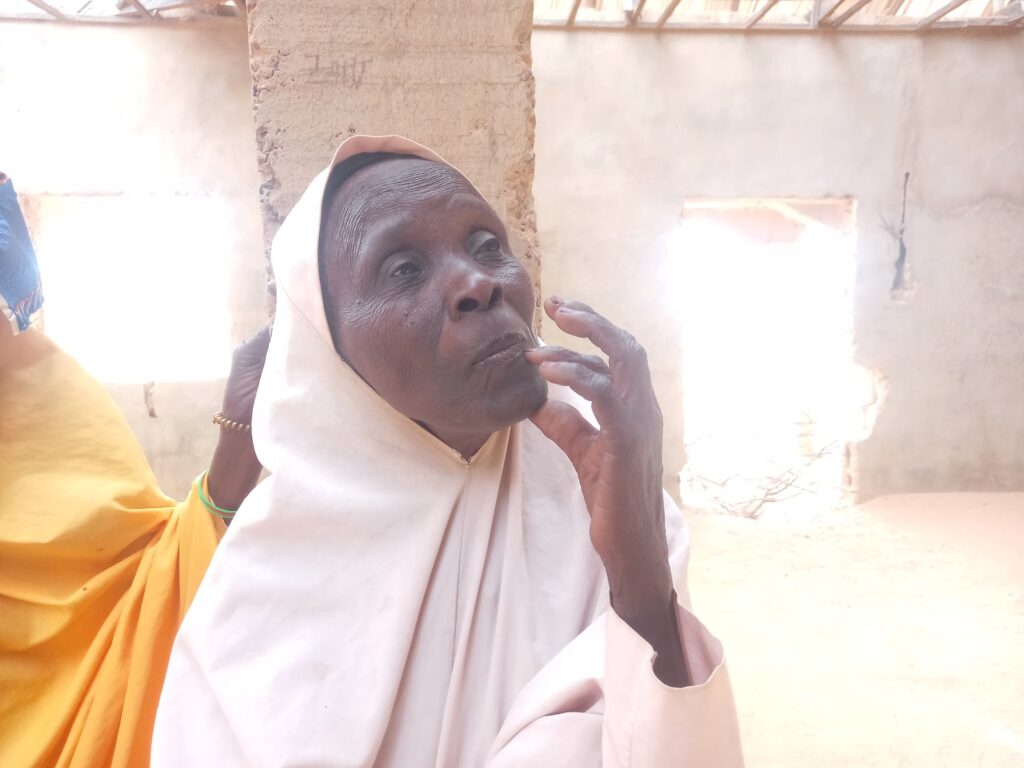
Unlike Aisha who could trek far distances to fetch firewood, Hadiza Muhammed, 40, fears she may be abducted by terrorists. She would rather beg for food to feed herself and her eight children than leave the relative safety of the camp.
“Nowhere is safe. Not even this place that we are living in. Eating is difficult and getting water to drink is more difficult.”
Blurry future for children
In Dec. 2021, Amnesty International reported that children have become a major target of bandits and that schools are being shut down indefinitely due to rising insecurity. Over 780 children were reportedly abducted for ransom in 2021, while over 61 were still in captivity months after they were kidnapped.
HumAngle observed that most of the children in the IDP camp have either lost one or both their parents to terror attacks. The ones with their parents alive are not spared from the life of struggle, having their rights trampled on despite provisions of the 2003 Child’s Rights Act which forbids violence against children.
Most of the children between the ages of five and 10 have known nothing but violence and terror attacks. They were born amid insecurity and are yet to witness considerable peace since birth. They wake up and push through the day, with no defined certainty about the future.
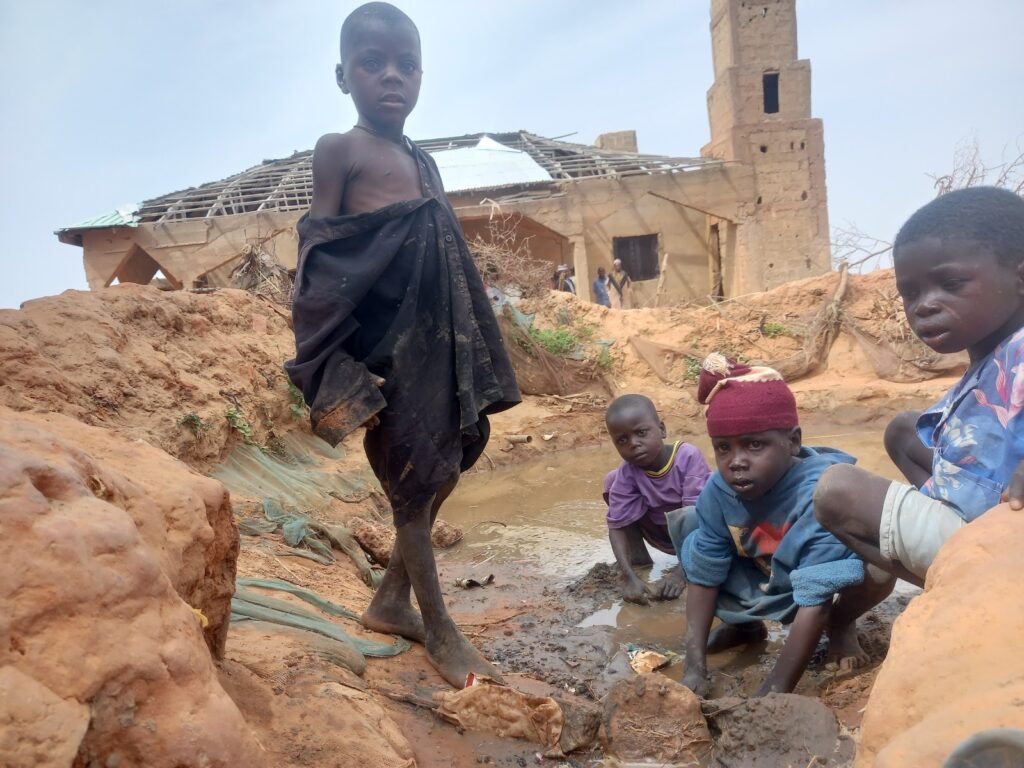
They have not only been denied their right to education, they suffer malnutrition and their lives are punctuated by recurring diseases. Those touted as ‘leaders of tomorrow’ by their teachers before they had to drop out of school have their education on hold until there is an end to the armed violence in the region.
“They would only be leading their IDP camps if authorities fail to address the security challenges in the country. Their parents would have dreams for them but with their current situation they are far from achieving those dreams,” said Ebenezer Omejalile, a child’s rights activist.
Support Our Journalism
There are millions of ordinary people affected by conflict in Africa whose stories are missing in the mainstream media. HumAngle is determined to tell those challenging and under-reported stories, hoping that the people impacted by these conflicts will find the safety and security they deserve.
To ensure that we continue to provide public service coverage, we have a small favour to ask you. We want you to be part of our journalistic endeavour by contributing a token to us.
Your donation will further promote a robust, free, and independent media.
Donate HereStay Closer To The Stories That Matter




